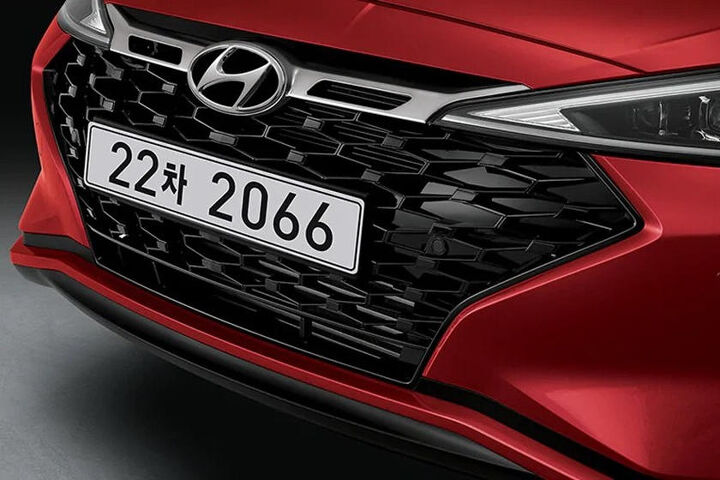South Korea: Auto Sales Tank As Coronavirus Spreads

An outbreak of novel coronavirus that leapt from China to South Korea last month sent auto sales tumbling in February.
While the South Korean outbreak originated in a tight-knit religious sect, it soon entered the surrounding community. The country’s government moved quickly to curtail the virus’ spread, declaring an extreme threat on February 23rd. It didn’t, however, lock down down its third-largest city, Daugu, in a China-style containment effort. Coronavirus cases in South Korea now top 4,200.
As the disease forces South Koreans to change their habits, one side effect has been the avoidance of new car dealers.
The year-over-year sales decline seen in February is not severe as that seen in China, where tens of millions were forced indoors and public spaces shuttered, but it’s still significant. Total new car sales volume fell 11 percent in February, according to Xinhuanet.
South Korea’s flagship marque, Hyundai, posted a year-over-year drop of 13 percent, with more than 40,000 vehicles shaved from its sales tally. The last time Hyundai posted monthly volume this low in its home country was 2010. Affiliate division Kia Motors fared better last month, recording a sales loss of just 5 percent.
With the most coronavirus cases outside of China, South Korea’s near-term outlook isn’t good.
“With sluggish consumption affecting demand on top of it all, means auto sales are certain to be hit in the first quarter, and the impact expected to continue until at least the beginning of the second quarter,” said Korea Investment & Securities analyst Kim Jin-woo in a note reported by Reuters.
Having already briefly idled production after the coronavirus stemmed the flow of parts from China, Hyundai was forced to shut down a plant in Ulsan on Friday after an employee tested positive for the illness. That city houses five Hyundai Motor Group plants.
For Hyundai, the past few years have been a wild ride. The automaker’s sales plunged in North America a few years ago after its car-heavy product mix clashed with rapidly evolving consumer tastes, forcing the company to embark on a ( so far successful) crossover vehicle offensive. At the same time, labor unrest roiled the company. Meanwhile, a missile-related spat with China saw the brand become persona non grata in that market, sinking sales by the hundreds of thousands. By 2019, Hyundai’s Chinese market share had sunk to to half of its former strength.
Now, the automaker has to contend with a sudden epidemic sinking sales and complicating production both at home and abroad.
[Image: Hyundai]

More by Steph Willems
Latest Car Reviews
Read moreLatest Product Reviews
Read moreRecent Comments
- Analoggrotto Does anyone seriously listen to this?
- Thomas Same here....but keep in mind that EVs are already much more efficient than ICE vehicles. They need to catch up in all the other areas you mentioned.
- Analoggrotto It's great to see TTAC kicking up the best for their #1 corporate sponsor. Keep up the good work guys.
- John66ny Title about self driving cars, linked podcast about headlight restoration. Some relationship?
- Jeff JMII--If I did not get my Maverick my next choice was a Santa Cruz. They are different but then they are both compact pickups the only real compact pickups on the market. I am glad to hear that the Santa Cruz will have knobs and buttons on it for 2025 it would be good if they offered a hybrid as well. When I looked at both trucks it was less about brand loyalty and more about price, size, and features. I have owned 2 gm made trucks in the past and liked both but gm does not make a true compact truck and neither does Ram, Toyota, or Nissan. The Maverick was the only Ford product that I wanted. If I wanted a larger truck I would have kept either my 99 S-10 extended cab with a 2.2 I-4 5 speed or my 08 Isuzu I-370 4 x 4 with the 3.7 I-5, tow package, heated leather seats, and other niceties and it road like a luxury vehicle. I believe the demand is there for other manufacturers to make compact pickups. The proposed hybrid Toyota Stout would be a great truck. Subaru has experience making small trucks and they could make a very competitive compact truck and Subaru has a great all wheel drive system. Chevy has a great compact pickup offered in South America called the Montana which gm could make in North America and offered in the US and Canada. Ram has a great little compact truck offered in South America as well. Compact trucks are a great vehicle for those who want an open bed for hauling but what a smaller more affordable efficient practical vehicle.


































Comments
Join the conversation
Interactive map from Johns Hopkins - click on the red circles for Confirmed/Deaths/Recovered/ Existing figures by Country/Region (or you can change to City-State/Province view): https://gisanddata.maps.arcgis.com/apps/opsdashboard/index.html#/bda7594740fd40299423467b48e9ecf6
Slight correction: the city of origination is spelled "Daegu", not "Daugu" ("It didn’t, however, lock down down its third-largest city, Daugu").